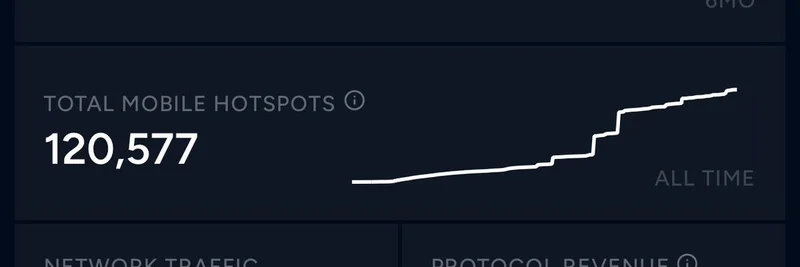Hey there, crypto enthusiasts! If you’ve been keeping an eye on the blockchain world, you’ve probably heard about the ongoing drama surrounding Roman Storm, a developer tied to Tornado Cash. Recently, Solana co-founder Anatoly Yakovenko dropped a bold statement on X, arguing that Roman Storm shouldn’t be prosecuted as a money transmitter. Let’s dive into this hot topic, break it down, and see why it’s sparking such a big debate in the crypto community.
What’s the Roman Storm Case All About?
For those new to the story, Roman Storm is one of the developers behind Tornado Cash, a privacy tool on the Ethereum blockchain that helps users mix their transactions to protect their financial privacy. In 2025, after a four-week trial, a jury found Storm guilty of operating an unlicensed money transmitting business but cleared him of sanctions evasion charges. The money laundering count remains undecided, which could mean up to 20 years in prison if convicted later. This partial verdict has left many in the crypto space uneasy, especially since the U.S. government is pushing to hold developers accountable for how their code is used.
Yakovenko’s tweet, posted on August 8, 2025, at 17:42 UTC, cuts to the core of the issue. He argues that Storm’s software and servers only broadcast user messages without altering them—essentially acting like a neutral relay, much like an internet service provider (ISP) or even a T-shirt printing data. If the data itself is illegal, Yakovenko suggests, the blame should fall on the originator, not the infrastructure providers who just pass it along.
Why Yakovenko Thinks This Prosecution Doesn’t Make Sense
Yakovenko’s reasoning is pretty straightforward and resonates with many blockchain developers. Here’s the gist:
- Neutral Role of Software: Tornado Cash’s code doesn’t modify user transactions—it just relays them. Yakovenko compares this to an ISP like AT&T, which forwards data without checking its content. Should AT&T be liable if someone uses its network for illegal activity? Most would say no.
- Developer vs. Operator: Storm built the tool, but he didn’t actively handle or profit from any “dirty money.” This distinction is key—developers create tools, but users decide how to use them.
- Precedent Danger: If copying and broadcasting data becomes illegal, it could threaten every tech company, from cloud providers to social media platforms. Imagine Facebook being sued for hosting a shady post!
This argument ties into a broader discussion about DeFi (Decentralized Finance), where smart contracts and decentralized apps (DApps) run autonomously. Holding developers liable could stifle innovation, which is why Yakovenko and others are rallying behind Storm.
The Community’s Reaction
Yakovenko’s tweet didn’t just sit there—it sparked a firestorm of support. Fellow crypto influencer David Hoffman thanked him, while others like Isaac brought in a cool tech angle, referencing Claude Shannon’s 1948 information theory. This theory says data transmission is substrate-independent—whether it’s sent over the internet or printed on a T-shirt, the message’s nature stays the same. It’s a nerdy but powerful point that supports Yakovenko’s stance.
The community also sees this as a fight for digital rights. Comments like those from fedor | DeFi Alpha highlight that punishing builders for running relays could kill DeFi’s foundation—no developers, no ecosystem. Even RYAN SΞAN ADAMS chimed in with a cheeky nod to “Ethereum alignment,” showing how this issue bridges rival blockchain communities.
The Bigger Picture: Crypto Regulation and Developer Liability
This case isn’t just about Storm—it’s a test for how governments will treat blockchain developers moving forward. The U.S. Department of Justice (DOJ) has been aggressive under Biden-era policies, but Trump’s recent “Blanche Memo” suggests a shift, discouraging prosecutions of developers without clear criminal intent. If Storm’s conviction stands, it could set a precedent that scares off coders from building privacy tools or DeFi projects.
On the flip side, regulators argue that tools like Tornado Cash have been used to launder money, citing cases where criminals exploited its privacy features. The WIRED article from August 6, 2025, notes prosecutors claiming the “real money” was in hiding illicit funds, not protecting regular users. This tension between privacy and legality is at the heart of the debate.
What’s Next for Roman Storm and the Crypto World?
Storm’s legal team plans to fight the single conviction with a post-trial motion, and the Ethereum Foundation is matching up to $500K in donations for his defense (check out this thread for details). The outcome could shape how developers are treated globally, especially in places like Solana’s ecosystem, where Yakovenko is a key figure.
For meme token fans and blockchain practitioners, this is a wake-up call. If developers can’t build without fear of prosecution, the innovative spirit that fuels projects—yes, even the wild meme coins—could take a hit. Stay tuned to meme-insider.com for more updates on how this plays out and how it might affect the meme token space.
What do you think? Should developers like Roman Storm be held accountable, or is this a step too far for crypto freedom? Drop your thoughts in the comments—we’d love to hear from you!


